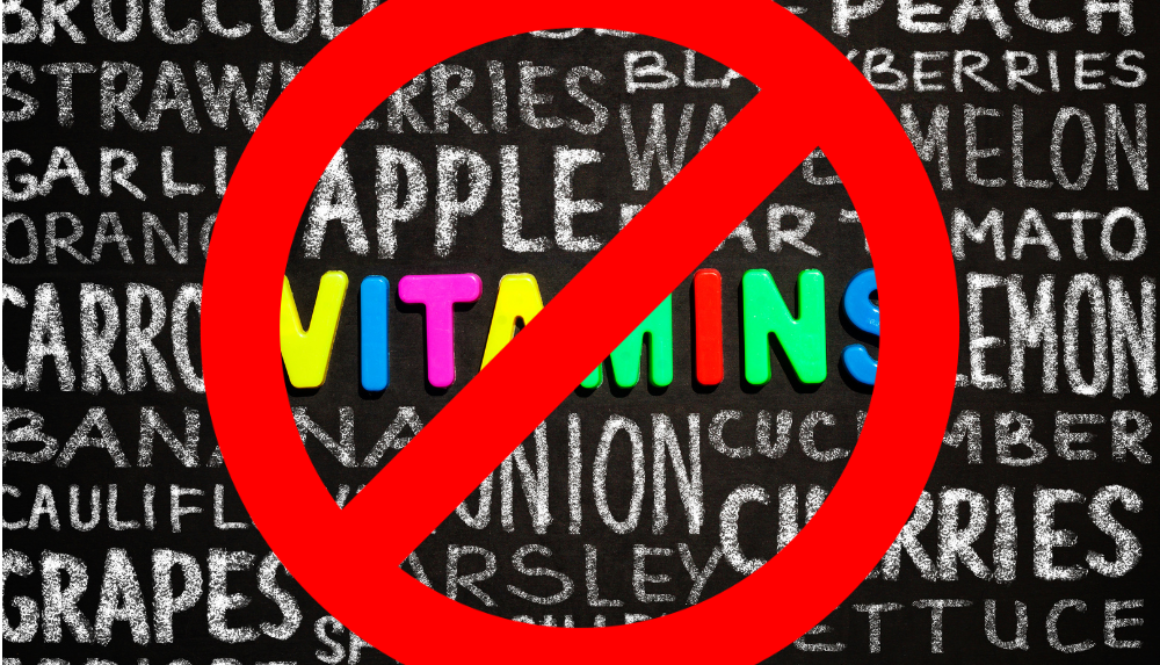Danger! The Downside of Nutritional Deficiency
Conditions caused by nutritional deficiency occur when the body doesn’t absorb or get the necessary amount of a nutrient from food. When we talk about our health, nutrition sits at the forefront. Without the proper nutrients, our bodies can’t function properly. Deficiencies can lead to a variety of health problems, including diseases, skin conditions, and even mental health issues.
Let’s break down nutrients into two categories: macronutrients and micronutrients. Macronutrients are carbohydrates, proteins, and fats. They’re the fuel our bodies use for energy. Meanwhile, micronutrients, which include vitamins and minerals, are vital for disease prevention, growth, and good health. While both types are equally essential today, I’m zoning in on the micronutrients.
A myriad of causes can be behind nutritional deficiency. Poor diet tops the list, but it’s not alone. Factors like malabsorption, certain health conditions, and even lifestyle choices can interfere with the uptake of crucial vitamins and minerals.
The issue is global, affecting populations in both developed and developing countries. It’s not a concern limited to those in extreme poverty; dietary choices and modern lifestyles in wealthier nations lead to their own set of deficiency-related problems.
You can catch deficiencies early by tuning into your body and noticing warning signals. Sometimes, the clues are subtle—a feeling of fatigue. Other times, it could be recurring infections. In others, the clues are more pronounced. Recognizing these signs is critical, and it’s the bridge to our next topic: identifying the symptoms associated with nutritional deficiencies.
Recognizing the Signs: Symptoms of Nutritional Deficiency
Nutritional deficiencies can sneak up silently, often presenting with symptoms that might be mistaken for other health issues. It’s vital to spot these signs early to swiftly address potential deficiencies.
The body gives off numerous hints when it’s running low on nutrients. Fatigue, dizziness, and weakness could point toward anemia, a typical result of iron deficiency. A lack of vitamin D might lead to weak bones and chronic pain, whilst insufficient vitamin B12 can cause tingling in hands and feet, memory issues and fatigue.
Children, pregnant women, the older population, and individuals with chronic illnesses are particularly susceptible to the effects of nutritional deficiencies. Stunted growth and developmental delays are red flags in children. In contrast, adults might experience more subtle symptoms like hair loss or skin changes.
Nutritional deficiencies can adversely influence not just the body but also the mind. Deficiency in specific B vitamins has links to depression and cognitive decline. As such, it’s not merely a physical matter but one that intertwines with mental well-being.
If you experience persistent symptoms, especially if you’re part of a high-risk group or have dietary restrictions, consult a healthcare professional. They can provide a proper diagnosis, often with a simple blood test, and guide you toward recovery.
The Hidden Scurvy: Vitamin C Deficiency in the Modern World
It might surprise you, but scurvy, a condition historically associated with 18th-century sailors, still exists today. Vitamin C is vital for maintaining healthy connective tissues, teeth, and bones. Scurvy develops if we’re deficient in vitamin C. More than that, vitamin C is an antioxidant and is crucial to the immune system.
Despite modern dietary improvements, certain groups remain at a higher risk for this deficiency. These groups include the elderly, individuals with alcohol use disorder, and those with limited access to fresh fruits and vegetables. Moreover, smokers may require more vitamin C due to increased oxidative stress. Recognizing the need for various groups helps in crafting targeted preventive measures.

Vitamin C deficiency doesn’t always present with the textbook symptoms of scurvy, such as bruising, swollen gums, and weakness. Sometimes, the signs can be subtle, like fatigue and irritability, which often get overlooked. Current research hints at a not-so-rare occurrence of subclinical deficiencies that do not manifest as full-blown scurvy but could affect overall health.
This evolving understanding demands a fresh look at how we handle vitamin C deficiency, from improving awareness to ensuring access to foods rich in vitamin C. Simple steps like adding a daily portion of citrus fruits or bell peppers to one’s diet could be a game changer for preventing deficiency.
Consequently, this dialogue about vitamin C sets the stage for a robust conversation on a related topic: iron deficiency anemia. This pair of nutritional issues often travel hand in hand, especially in certain groups with limited access to nutrient-rich foods.
Ironing Out the Issues: Combating Iron Deficiency Anemia
Iron is a powerhouse mineral essential for my body and yours. It’s a key component in hemoglobin, the protein that allows our red blood cells to carry oxygen throughout our body. Without adequate iron-producing healthy red blood cells, we become anemic.
This type of anemia is more than just feeling a little tired. It can cause weakness, shortness of breath, and dizziness. In more severe cases, it may lead to heart problems and complications in pregnancy. It’s especially concerning in young children and pregnant women, as it can have long-term effects on development and health.
Fortunately, iron deficiency anemia is preventable. A diet rich in iron-containing foods, like red meat, beans, and spinach, can make a huge difference. For some, dietary changes might not be enough, and that’s where supplements come in. Doctors often recommend them as an efficient way to restore iron levels, particularly for individuals at higher risk, such as those with certain health conditions or dietary restrictions.
Early detection is essential. Regular check-ups and blood tests can catch iron deficiency before it escalates. For parents and healthcare providers, paying close attention to growth and developmental milestones in children is crucial, as iron deficiency can sometimes manifest as normal fatigue or growth spurts.

As we transition to the next section, it’s clear that personal dietary choices play a pivotal role in managing and preventing iron deficiency anemia. Yet, it’s also essential to acknowledge the larger framework of public health policies and educational initiatives that support individual efforts to maintain optimal nutrition.
Prevention and Management: Building a Nutrient-Rich Future
A well-balanced, nutrient-rich diet is the surest way to prevent nutritional deficiencies. Every meal offers an opportunity to fuel your body with the vitamins, minerals, and other essential nutrients it needs to function correctly. Choosing a variety of whole foods like fruits, vegetables, lean proteins, whole grains, and legumes can create a solid nutritional foundation.

For some, dietary restrictions, health conditions, or lifestyle factors may make obtaining all necessary nutrients from food alone tricky. In these cases, supplements can play a vital role in filling nutritional gaps. However, it’s crucial to consult with a healthcare provider before starting any supplementation regimen to ensure its necessity and to avoid potential overconsumption.
On a broader scale, public health initiatives are vital to reducing nutritional deficiencies within communities. Food fortification, nutrition education programs, and accessible health services can significantly improve a population’s nutritional well-being.
Education is a powerful tool in the fight against malnutrition. Awareness campaigns and school-based programs can teach individuals, especially young people, about the importance of nutrition from an early age. By empowering people with knowledge about nourishing their bodies, we lay the groundwork for healthier future generations.
A collective effort from individuals, healthcare professionals, and policymakers is vital to create a future where nutritional deficiencies are a rarity rather than a common concern. With the correct information and resources, we can build a global community that thrives on the benefits of a nutrient-rich diet.
Summary
- Nutrition is crucial for good health, and deficiencies can lead to various health problems.
- Poor diet, malabsorption, and certain health conditions can all cause nutritional deficiencies.
- Nutritional deficiencies can have subtle symptoms that can be mistaken for other health issues, so it’s essential to recognize the signs early.
- Vitamin C and iron deficiencies are two common nutritional problems that can have severe consequences if left untreated.
- Recognizing the need for various groups helps in crafting targeted preventive measures.
Resources:
Everyday Health
https://www.everydayhealth.com/hs/guide-to-essential-nutrients/common-nutrient-deficiencies/

